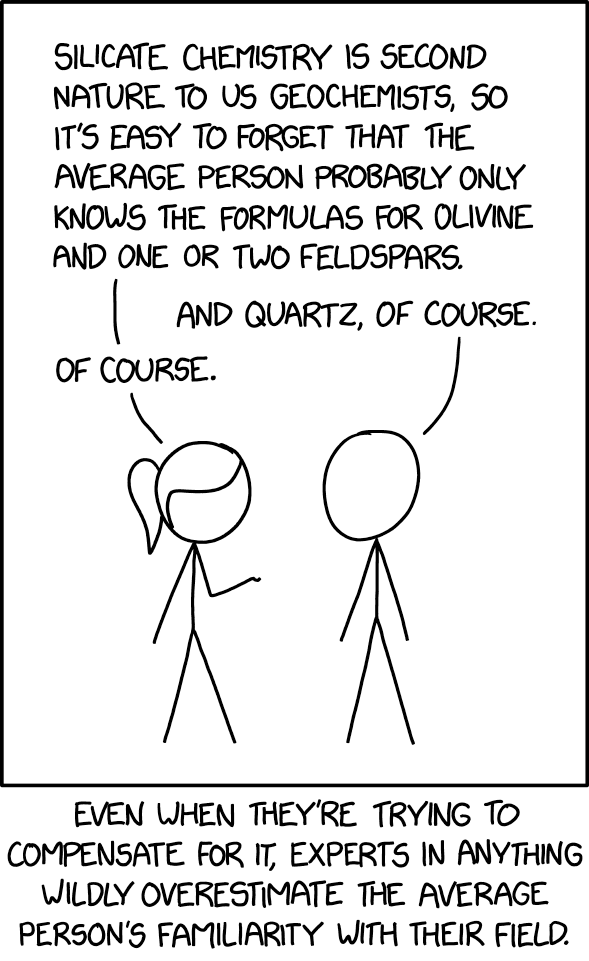There’s an old joke about two mathematicians in a cafe. They’re arguing about whether ordinary people understand basic mathematics. The first mathematician says yes, of course they do! And the second disagrees.
The second mathematician goes to the toilet, and the first calls over their blonde waitress. He says to her, "in a minute my friend is going to come back from the toilet, and I’m going to ask you a question. I want you to reply, “one third x cubed.'”
“One ther desque,” she repeats.
“One third x cubed,” the mathematician tries again.
“One thir dek scubed.”
“That’ll do,” he says, and she heads off. The second mathematician returns from the toilet and the first lays him a challenge. “I’ll prove it. I’ll call over that blonde waitress and ask her a simple integration question, and see if she can answer.” The second mathematician agrees, and they call her over.
“My friend and I have a question,” the first mathematician asks the waitress. “Do you know what is the integral of x squared?”
“One thir dek scubed,” she answers and the second mathematician is impressed and concedes the point.
And as she walks away, the waitress calls over her shoulder,
“Plus a constant.”
One of the most useful concepts ever:
the Curse of Knowledge.
Explaining something to someone? Zoom out. Back up. What if that person were an alien, how much more context would you need to explain?
The curse of knowledge is a cognitive bias that occurs when an individual, who is communicating with others, assumes that others have information that is only available to themselves, assuming they all share a background and understanding. This bias is also called by some authors the curse of expertise.
One of the things I look for in employees is the ability to distill complex topics into the important elements and explain it to someone unfamiliar. Some people are just naturally good at it, and it’s a really important skill for moving up a leadership chain.
Me talking to my dad (who last held the position of professional programmer 30 years ago) about the programming problem I’m working on and vastly overestimating how much he knows about modern software development parlance
Just yesterday I ran into some chucklehead here on Lemmy that had convinced themselves that the average person would interpret “crypto” to mean SSL rather than cryptocurrency.
It’s insane how close that handwriting is to randall’s, did he make multiple versions of this comic or was this written by a professional forger?
For context, here’s the original comic:

I feel attacked.
I feel like I skipped right over this comment.



